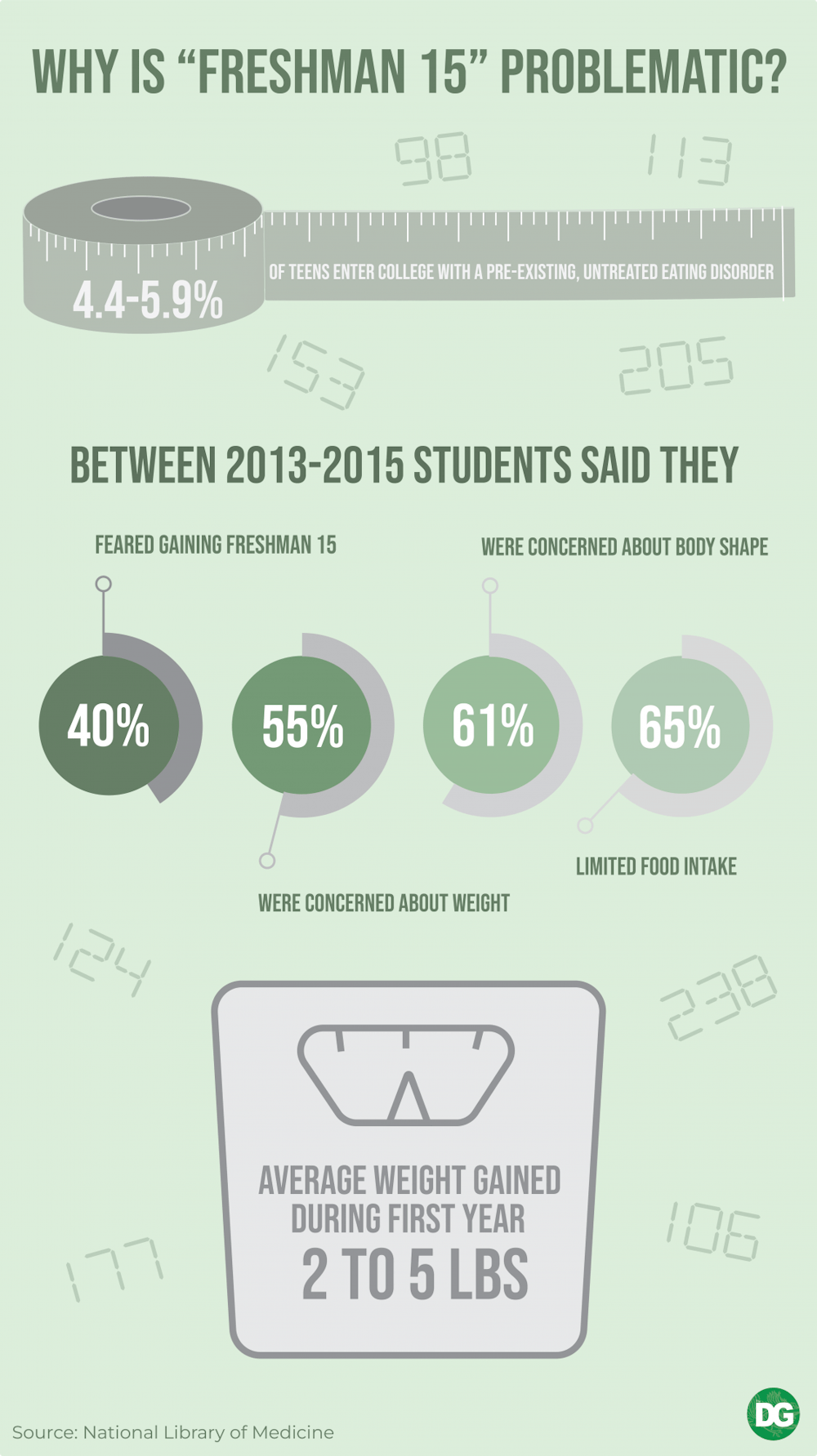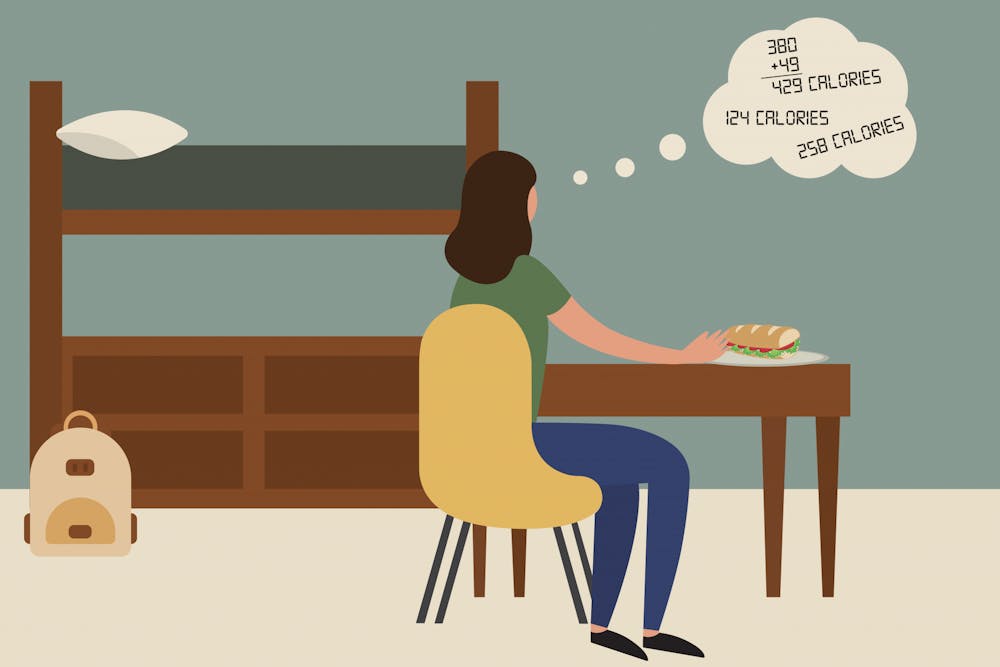The term "freshman 15" often perpetuates a weight stigma in college students that can lead to stress-related eating and possible eating disorders. Students need to embrace the natural changes to their bodies and focus on creating healthy eating habits as they progress through college rather than worrying about weight.
"Freshman 15" is the misconception that freshmen gain 15 pounds when they first enter college because they don’t know how to manage their food and eating habits when moving away from home.
This phrase has been around for decades. A study by the National Center for Biotechnology Information suggests that the idea just isn't true. The study showed that college students only gain an average of 3.2 pounds throughout their first and second year of college.

Having terms like this thrown around makes students more self-conscious about weight gain. In college, students are discovering what eating habits they should form in order to be their most healthy selves and what works with their schedule. Students shouldn't have to be worried about the natural changes that their bodies are going through.
“It is not something that we need to go into college thinking about food restriction because we are afraid of the 'freshman 15.' It's normal for our bodies to develop and change at that time in life, and it's not necessarily because of bad food decisions," Madeline Moran, a counselor for Soda City Counseling, said.
Moran explained that it is natural for bodies to change as people get older and is an important part of development. College students may gain, lose or maintain the weight they had before entering college, and there shouldn't be an expectation that students will gain weight or need to lose weight.
College freshmen are often living on their own for the first time, and they have to decide what they eat and what food to buy while taking on countless other responsibilities, such as classes or a job. As a result, students need to make sure they are eating enough to help them maintain their energy throughout the day and should be more concerned about getting the right amount of nutrients rather than worrying about their weight.
"It kind of surprised me, because I actually lost a lot more weight than I gained," Charissa Stacey, a first-year nursing student, said. "I almost lost my 'freshman 15' instead of gaining one. And so I thought that was very interesting because I was going into it thinking, 'Okay, I might gain some weight, no big deal, I probably could use it anyways.' Then actually losing it I was like, 'Woah, I have to be more mindful of what I eat in eating enough rather than eating too much.'”
People have different experiences with weight changes, making it even more important to follow what your body needs to function rather than trying to get to a specific weight. The need to reach an ideal weight or body shape can have harmful effects on ones self esteem and health.
"It's definitely part of what we consider 'weight stigma'. It's considered to be something that's unappealing, that's not okay. It has a lot of shame to it," Casey Kelly, a clinical therapist with New Hope Counseling, said. "I think the thing that gets stuck with us and what ends up creating a catalyst for disordered eating is that shame. It's the idea that this is not okay."
According to the National Eating Disorders Association, eating disorders typically begin between 18 and 21 years of age. According to a study done in psychiatry research, from 2013 to 2020/2021, the prevalence of ED risk increased significantly from 15% to 28% among US college students. With the prevalence of eating disorders increasing amongst college students, having terms thrown around like the "freshman 15" creates weight stigma that does not help students maintain a healthy mindset.
College students need to eat according to their needs and make sure that they are getting their proper nutrition. Thus, inaccurate myths like the "freshman 15" should not be taken into consideration when forming daily eating habits.

